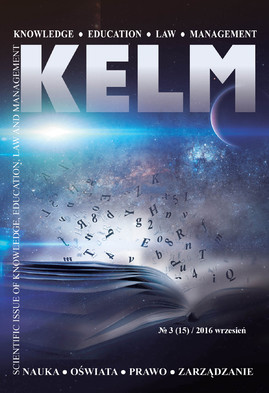КВАНТИТАТИВНИЙ ВИМІР СЕМАНТИЧНИХ ОСОБЛИВОСТЕЙ КОМПОНЕНТНОГО СКЛАДУ НІМЕЦЬКОЇ ФРАЗЕОЛОГІЇ ПОЗА МЕЖАМИ ФРН
QUANTITATIVE DIMENSION OF SEMANTIC PECULIARITIES OF THE COMPONENT SET IN THE GERMAN PHRASEOLOGY ABROAD GERMANY
Author(s): Oleh OstapovychSubject(s): Language studies, Lexis, Semantics
Published by: Fundacja „Oświata i Nauka Bez Granic PRO FUTURO”
Keywords: German; phraseology; non-dominant national state variant; dialectism; borrowing; linguistic symbol; thematic field; concept;
Summary/Abstract: The article deals with the peculiarities of the constituent set of phraseology in the nondominant national state variants of the modern standard German. The productive types of lexical components – dialectisms, foreign borrowings, symbol lexemes, thematic fields and conceptual spheres, verbalized by them within the phrasemes, as well as topical ideographic corpora have been defined in order to research certain peculiarities of the linguistic world-view by Germanspeaking nations abroad Germany. As a result the dialectal provenience of Swiss national standard phraseology was defined as much stronger then this of Austrian one, as well as the predominance through the cantonal confederative autonomism of the concept of “state” and “direct democracy” in Switzerland compared to the “nation” and “history” in Austria. Due to the lack of the specific number and chromatonymic verbal symbols in the standard variant German phraseology (different from the common German invariant nucleus) the Swiss idiomatic thesaurus is characterized through the higher grade of heterogeneity and diffusity. This proved our hypothesis about the important signal identification function of dialectal periphery archisemantica as the components of variant idioms, which has a clear priority compared to the direct cumulative nomination of realia.
Journal: KELM (Knowledge, Education, Law, and Management)
- Issue Year: 15/2016
- Issue No: 3
- Page Range: 202-215
- Page Count: 14
- Language: English, Ukrainian

